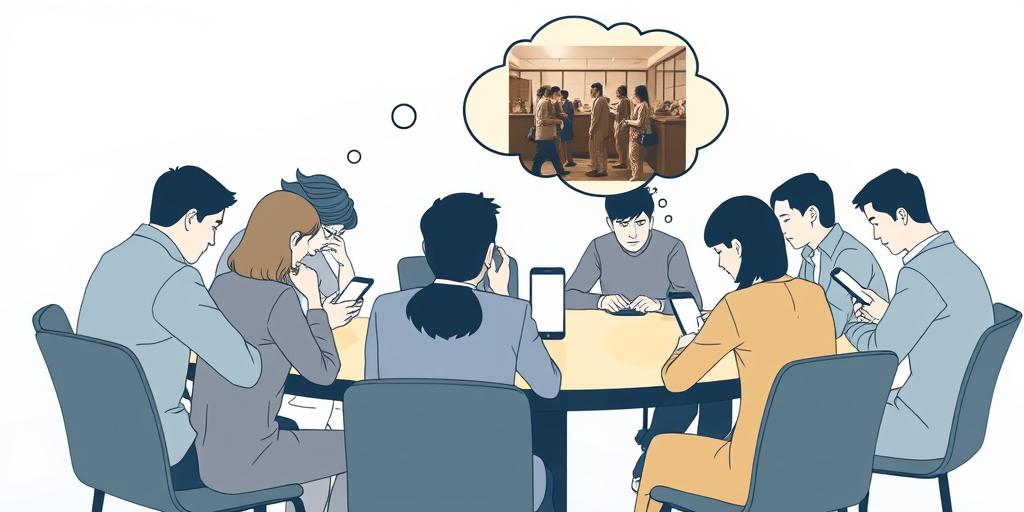In our increasingly digital world, where smartphones and other gadgets are an inseparable part of our lives, it’s natural to wonder if we’re losing our ability to communicate effectively. While technology offers incredible benefits, it’s crucial to recognize its potential impact on our communication skills.
The Rise of Gadgets and the Decline of Conversation
The Ubiquitous Presence of Gadgets
Gadgets have become an indispensable part of our daily routines. From waking up to our alarm clocks to falling asleep with our smartphones, technology permeates every aspect of our lives. This constant presence has significantly altered our communication habits.
The Shift in Communication Habits
The advent of social media, instant messaging, and video calls has revolutionized the way we connect with others. While these platforms offer convenience and accessibility, they have also led to a shift in our communication preferences. We often prioritize quick, asynchronous interactions over face-to-face conversations.
The Impact of Gadgets on Face-to-Face Interaction
Distracted Communication
When we’re constantly checking our phones or scrolling through social media feeds during conversations, we send a message that we’re not fully present. This distracted communication can make others feel unheard and unimportant, hindering meaningful connection.
The Erosion of Empathy and Emotional Intelligence
Face-to-face communication allows us to pick up on subtle cues like body language and facial expressions, which are crucial for understanding emotions. However, relying heavily on digital communication can limit our ability to interpret these nonverbal signals, potentially leading to misinterpretations and misunderstandings.
The Decline of Active Listening
In a world of instant gratification, we’re accustomed to consuming information quickly and moving on to the next thing. This tendency can translate into poor listening habits, making it difficult to truly engage in meaningful conversations. Active listening requires our full attention, something that can be challenging in a gadget-filled environment.
The Benefits of Face-to-Face Communication
Enhanced Understanding and Connection
Face-to-face interactions offer a unique opportunity for deep understanding and connection. When we’re physically present with someone, we can observe their reactions, hear the nuances in their voice, and connect with their emotions on a deeper level.
Improved Problem-Solving and Collaboration
Collaborative tasks often benefit from face-to-face interaction. The ability to share ideas, brainstorm solutions, and build consensus is enhanced through direct communication, where nonverbal cues can provide valuable insight.
Strengthened Relationships and Social Bonds
Sustaining strong relationships requires consistent and meaningful communication. While digital communication has its place, nothing can replace the intimacy and connection fostered through face-to-face interactions.
Reclaiming the Art of Conversation
Setting Boundaries with Gadgets
Taking deliberate steps to limit our gadget usage can make a significant difference in our ability to connect with others. Setting aside “no-phone zones” in certain environments, such as mealtimes or social gatherings, can help us cultivate more meaningful interactions.
Engaging in Mindful Communication
When we do engage in face-to-face conversations, it’s important to be fully present and mindful. Putting away our phones, making eye contact, and actively listening without distractions can enhance the quality of our interactions.
Prioritizing Face-to-Face Interactions
Making a conscious effort to schedule regular face-to-face time with loved ones can help us nurture our relationships and strengthen our communication skills. Whether it’s a coffee date with a friend, a family dinner, or a simple walk in the park, prioritizing in-person interactions can significantly improve our social connections.
Finding Balance in the Digital Age
The Importance of Technology and Human Connection
Technology has revolutionized the way we communicate and connect with others, offering incredible benefits such as instant communication, access to information, and global connectivity. However, it’s important to remember that technology is a tool, and like any tool, it should be used responsibly.
A Call for Conscious Communication in a Gadget-Filled World
In our gadget-filled world, it’s more important than ever to be mindful of how technology affects our communication skills. By setting healthy boundaries, prioritizing face-to-face interactions, and engaging in conscious communication, we can ensure that technology enhances our lives without compromising our ability to connect with others on a meaningful level. This balance is crucial for fostering strong relationships, building healthy communities, and cultivating a truly human experience in the digital age.




